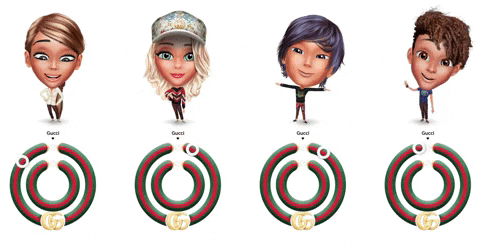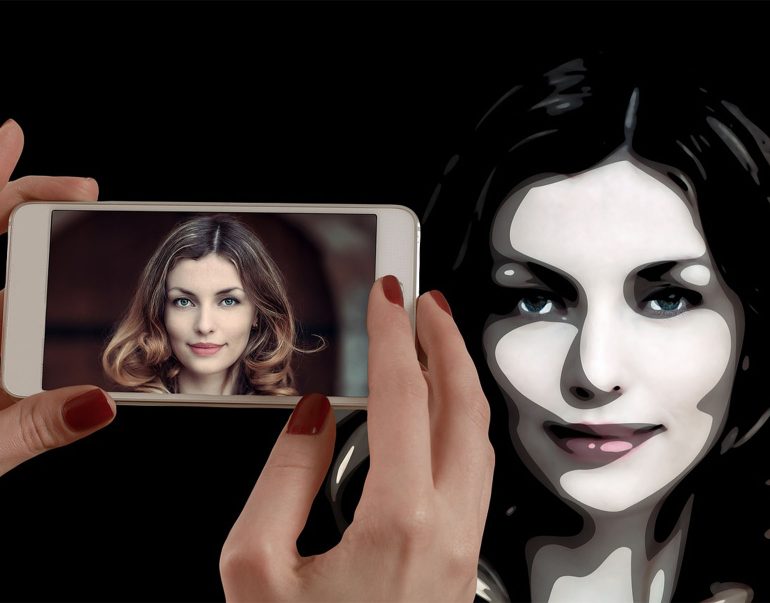Thanks to James Cameron, since 2009, the word ‘avatar’ would instantly inspire the imagery of tall, blue-skinned characters. At the time, digital avatars were primarily a gaming proposition designed to represent our identity as the character we chose. And the image of our digital doubles was always far removed from our real likeness. But today, that has changed and our digital lives are a closer reflection of our real world. The reality that LindenLab had portrayed in their video game experience “Second Life”, with multiplayer digital role-playing giving way to our digital doubles, socializing, even spending real money in digital worlds, is now an accepted fact.

The trend report Shape of the Future references the idea of a digital double. Today, digital extensions of our real selves look increasingly like ourselves, just more perfect. Like the erstwhile virtual characters of the gaming industry, they still represent our identities in the digital world, but as technologies like Voice, 3D scanning, AR/VR and digital modelling begin to mature, we are beginning to model actual people into virtual likeness that are indistinguishable from our real selves. DNABlock, an avatar startup, makes digital copies of hundreds of celebrities. By high definition scanning and digital processing, the company creates real life digital models of people that can then be powered by AI to live our digital lives. Avatar Agency negotiates brand partnerships on behalf of the digital doubles of star musicians and athletes, and recently negotiated an endorsement deal for Bird scooters, with the digital likeness to Los Angeles football quarterback Jared Goff.
Malan Breton “Immortal” #VR fashion show by DNABLOCK Pre Spring 2021
Our social identity guides our behaviour, while digital doubles make our decisions online.
The role of the digital doubles is beginning to take on a bigger meaning. Psychology theory from behavioural sciences states that social identity strongly guides our behaviour. We shape ourselves to belong to a group, and try to emulate behaviour that will bolster and support the identity of the group, avoiding behaviour that will betray the group. This is one of the reasons that people in the same profession tend to buy similar cars and read similar magazines.
As we increase our digital footprint and our social lives move online, our digital avatars mimic our real worlds. They store our preferences, predict our purchases, and even begin to make real world decisions for us, digitally. Armed with AI, these digital avatars become self-learning, and could in fact, replace the real us in the digital world.

Brands and businesses are rethinking how to adopt digital avatars.
As consumers strengthen their digital doubles, brands do too. Gucci has recently partnered with Genies, an avatar platform and Gucci’s executive vice-president and chief marketing officer, Robert Triefus, says that the partnership is key to reaching the GenZ audience, who are often neglected by designer brands. Using the platform, the users can dress their digital avatars in Gucci’s latest collection and share them on social media platforms.
L’Oréal Australia created a back-end customer service program called Insider, using a digital rendering of a store where online customers are represented as digital avatars to customer service representatives. This allows customer service representatives to view where a customer is in their shopping journey, and how they are feeling at that time, even before they begin to engage in a conversation.
The virus and the social and economic fallout it caused, has suddenly left many of us simultaneously facing abrupt changes to our identities, and this has begun to force brands to rethink their strategy. Moving not just online, but reacting real-time.
The virus has forced us to rethink our sense of belonging, and reshape our identity both in real and digital world. And this will have strong ramifications for brands. For example, a new student who would normally have forged an identity with relation to a particular campus (think of the fierce sports club affiliations), or the membership of a fraternity, now faced with remote learning, has to find a way to “digitally engage” and forge a new sense of belonging. Covid-19 has accelerated digital adoption to connect with these new behaviours as they begin to shift in real time. So brands now need to design detailed, personalised consumer journeys with shifting touch points and behaviours. Brand strategy will no longer be about how to position them in the future, but about technology integrations that make them live in real-time. Mimicking the real world every second, in every way. There was never a better time to remember Henry Ford’s words about living in the present, “You can’t build a reputation on what you are going to do.”
**
Centre for Behavioural Research at Future Factory, published The Shape of the Future, a report which outlines major shifts that are redefining our lives in a post COVID world. One such trend goes by the name of ‘Collective Identities’, that this article references.Write to programs@futurefactory.in to request a copy.
About the author: Geetika is an engineer, MBA & researcher, who spends her time building connections between technology, business & users. She works at the Centre for Behavioural Research at Future Factory, advising organisations on how to build technology that addresses human behaviour.

